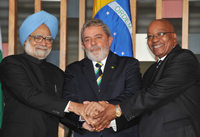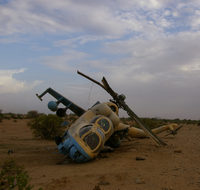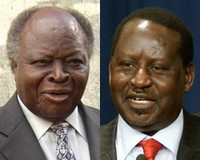
Last week, I highlighted the “bad news” that came out of Brasilia with regards to Washington’s Iran policy. There was, however, a silver lining that should not be ignored. Brazil’s President Luiz Inacio Lula de Silva hosted two meetings that week — that of the Brazil-Russia-India-China group (BRIC) and another for the India-Brazil-South Africa forum (IBSA). What is interesting to note is that China’s interest in playing a greater role in IBSA — with some even talking about expanding that group to become CHIBSA — was politely rebuffed. Indian Prime Minister Manmohan Singh stressed that IBSA is not simply a […]




